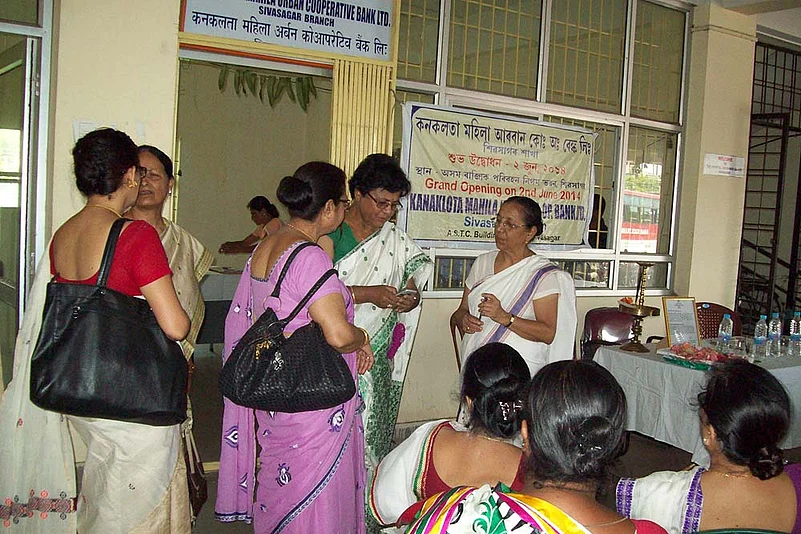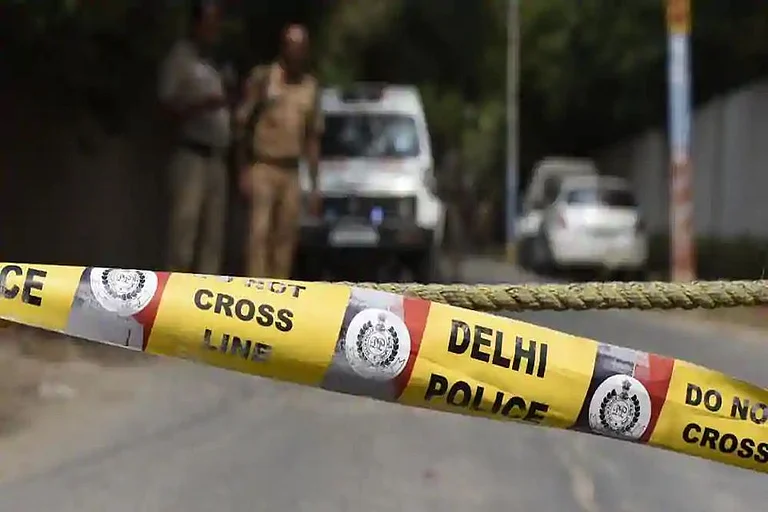A New Currency
- In addition to the usual services, the Konoklota bank also offers financial awareness camps
- By 2013 the bank had reached 21,000 people and that number has steadily increased since
***
Lakhimi Baruah left her job in banking to create the first all-women bank in the Northeast, smashing quite a few ideas about the divide between activism and white-collar professions. Lakhimi used to work as an accounts manager in the District Central Cooperative Bank in Assam. And every day, women from poor families queued up outside her counter for loans: women who had to cope with their alcoholic husbands and the threat of their children dropping out of schools in want of school fees. Yet, hampered by the rules, Baruah found herself unable to help them with loans. Her frustration increased as the queues lengthened.
By her early 50s, Lakhimi had had enough and decided to do something about making banks more inclusive for marginalised women. So in 1990, she began setting up a cooperative bank for women so they would not have to go to private moneylenders. Eventually, after eight years, the RBI too gave its go-ahead.
Two years later, she left her full-time job and registered the all-woman Konoklota Mahila Urban Cooperative Bank Limited in Assam. The bank was named after a freedom fighter who died young. “Konoklota sacrificed her life for political independence. It is only fitting that a bank created for the economic independence of women be named after her,” said 66-year-old Lakhimi, who is now the managing director of the bank.
The bank started from a room taken on rent from the district mahila samiti. “Women wanted to save their small amounts in a secure place without disclosing it to anyone. They wanted to save the money for their children and their future or simply as a safe deposit for the family,” says Lakhimi.
These days, a large number of private banks allow customers to open an account with zero balance. It was Lakhimi and her team who started this process at the all-woman bank 15 years back in the small town in the Brahmaputra valley. Interestingly, the share holdings and lending of the bank is open only to women while all other services are open to everyone.
From a zero working capital, the bank now has one of Rs 14 crore. What started with a membership of 1,500 people has now grown to 8,000 and the share capital has gone from Rs 1.45 lakh to Rs 46 lakh.
The bank lends individual women sums from Rs 500 to Rs 8.5 lakh at interest rates ranging from 4 per cent to 16.5 per cent depending on the scheme.
They hold awareness camps in remote places so that more people get to know about the bank and the facilities available. “The majority of our customers are illiterate as they come from the marginalised sections of the society. Since they have always remained confined within their community or village, they feel shy in discussing with others. So we make sure that such people are looked after with due care,” said Lakhimi.
With time the number of customers multiplied to 28,000, and the bank ventured into different sectors such as micro-insurance and micro-finance for sectors that are allied to agriculture, poultry, handloom and tailoring. A large number of customers are girls working in the tea gardens. The bank has spread to lend in all the municipal wards of the district and now it is moving to villages.
The financial help comes from public sector organisations such as the Small Industries Development Bank of India for micro finance and the Rashtriya Mahila Kosh for refinance. With three branches in Jorhat and one in the Sivasagar district, Lakhimi is preparing for another leap—a fifth one, this time in Golaghat.


























